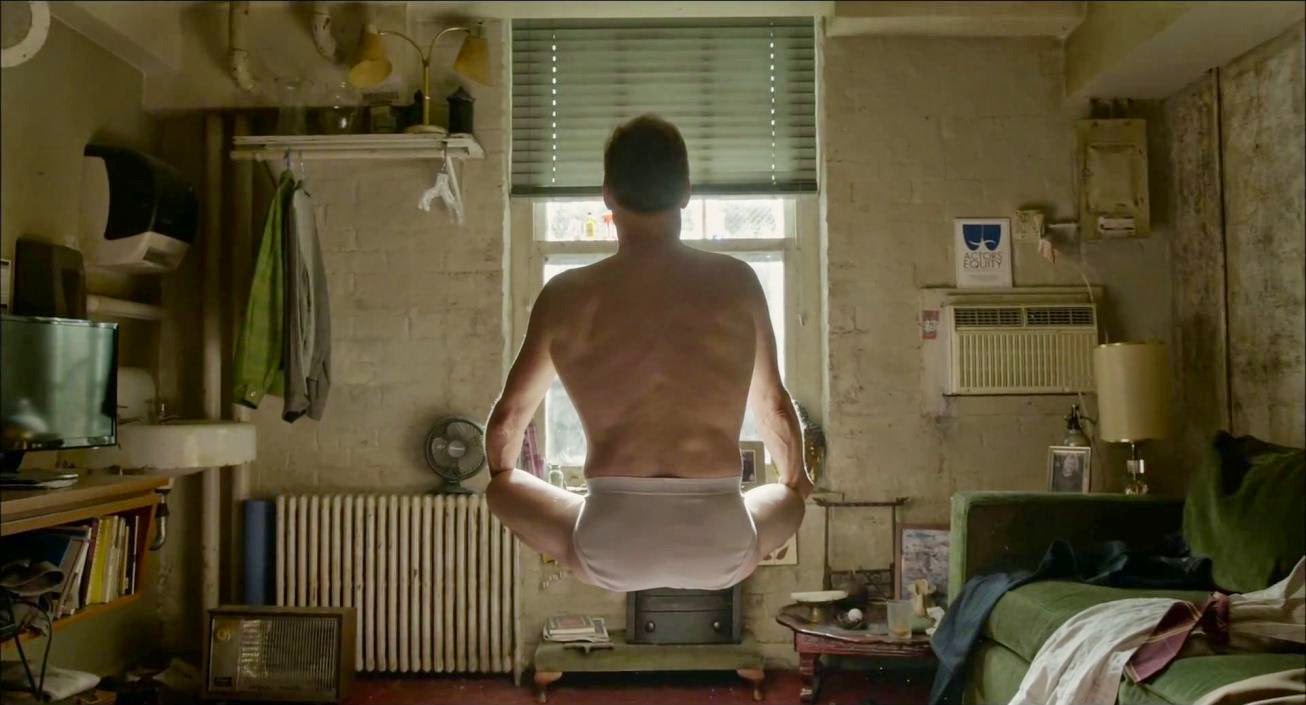'Birdman' Review
Above it all?
Film review by Isaac Handelman
Do you think that Hollywood has been diluted by a constant stream of mindless, action-heavy blockbuster releases? Then you’ll probably be a big fan of Alejandro Inarritu’s Birdman, because it thinks so, too, and it makes no attempt to mask its bias. Birdman may not succeed entirely in delivering this argument with subtle grace, but it still serves as a wickedly funny, emotionally profound character study that’ll keep you thinking long after you leave the theater.
Michael Keaton stars as Riggan Thompson, a once-famous actor renowned -- and now rejected -- for his starring role in the fictional “Birdman” superhero film series. Obsessed with rekindling the respect he once garnered, Riggan has written a more mature play for production on Broadway.
 |
| Birdman calls Riggan's reality into question. |
What Riggan will undoubtedly succeed at is earning an Oscar nomination for Keaton, who portrays the gradual fraying of Thomson’s psyche with unnerving grace. He’s unstable, unpredictable, and connects with viewers just enough to ensure he’s an endearing character without spoiling the ambiguity that Inarritu strives for.
Aside from a few obvious cuts at either end of Birdman, the film flows together with an incredible smoothness under the guise of a single, seamless shot. That Inarritu was able to pull off such a directorial feat without it getting in the way of the narrative is miraculous. As Riggan is whisked from interaction to interaction, we’re pulled along with him, gliding along through the narrow hallways and messy dressing rooms of the Broadway theater that serves as the setting for most of the film. Though on paper you’d expect Birdman to be limited in scope, it in fact succeeds at painting a brilliant picture of New York City despite being physically confined.
Birdman’s punchy percussion score is quite unique, and perfectly fits the film’s disjointed mood and unconventional cinematography. Semi-patterns of drums and cymbal crashes fade in and out as the camera sweeps haphazardly through doorways and slips past extras. It’s a somewhat disorienting audio-visual style, but a hugely memorable one to boot.
 |
| Norton and Keaton share considerable on-screen chemistry. |
Riggan’s first task is to seek out a star for his play, who he soon finds in the form of egotistical Broadway darling Michael Shiner (Edward Norton), a hysterically quirky jerk. Norton’s electric performance and impressive chemistry with Keaton imbue all of Shiner’s scenes with a sense of great organic fun, partially derived from the amount of fun Norton himself seems to have had in the role. He bounces between oftentimes-amusing despicability and the almost-honesty he displays during his interactions with Riggan’s daughter, Sam (Emma Stone).
Sam is a recovering drug addict, whose rocky relationship with her father certainly does nothing to ease her troubled mind. Young up-and-comer Stone gets the opportunity to grapple with some considerable dramatic material, and she pulls off the role, delivering one especially memorable, emotionally charged monologue. She’s inherently likable and manages not to fall into the “rebellious child” stereotype.
Several other familiar faces are present to less important extents; Zach Galifianakis plays Riggan’s borderline-neurotic friend, and lends some valuable comedic content to the proceedings. Naomi Watts and Andrea Riseborough appear as Riggan’s lead actress and girlfriend, respectively, and have a few especially memorable scenes of their own.
 |
| New York City feels ever-present in Birdman. |
Riggan finds himself navigating a minefield of issues -- both internal and external -- as he stumbles toward opening night. The actor is finding it difficult to let go of who he once was, but clues during Birdman’s duration lead viewers to wonder where Riggan’s psychological issues end, and what exactly is encompassed by the film’s vision of reality.
Birdman does its best to tie Riggan’s personal issues in with a broader study of Hollywood’s current state, and does so to middling success. Mostly, the social commentary comes across as intelligent; there are even a few amusing instances where Birdman pokes fun at cinema in general, coming ever-so-close to breaking the fourth wall. But the film’s delivery of its “underlying” theme becomes overtly ham-fisted during its climax, harming its ultimate impact.
Thankfully, Birdman’s examination of Riggan himself remains unwaveringly strong over the film’s entire course. The man wants desperately to be above everyone else, despite being repeatedly told he’s not. And ultimately, viewers will have to decide for themselves whether Riggan’s desires were justified, or were the products of being left by the wayside after his era passed.
Inarritu doesn’t set out to have Birdman answer many questions. In fact, chances are you’ll leave the theater with more uncertainties than you had walking in. Though it doesn’t succeed at flawlessly delivering its more ambitious messages, the film deserves the praise that’s being heaped upon it. Its breathtaking technical aspects are tempered by its sharp script and thematic profundity.




Comments
Post a Comment